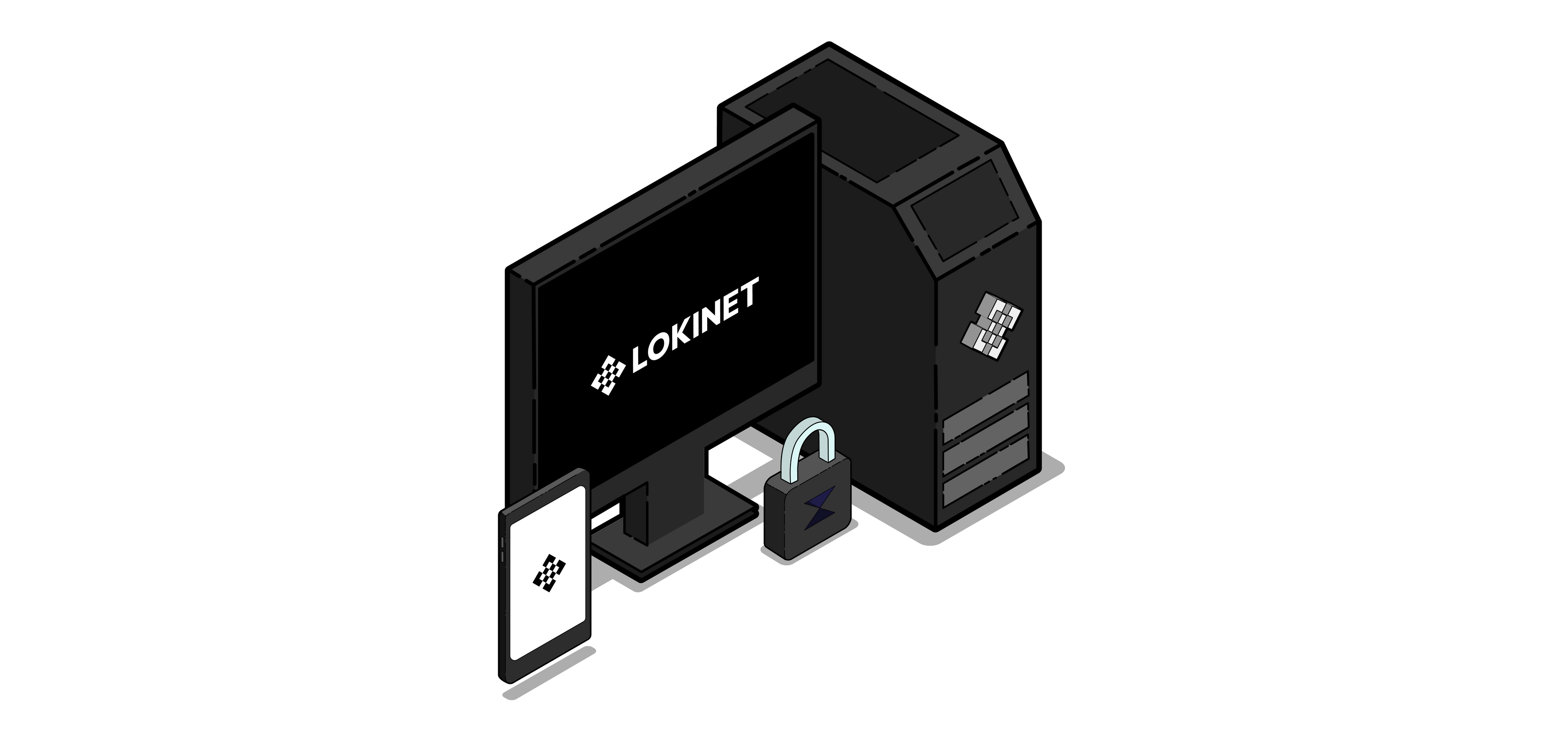Like a VPN, but better: The power and potential of Lokinet
Giving people access to region-restricted content—like Netflix, YouTube, or news articles—has put VPNs (virtual private network) on the map over the last decade. But even though VPNs might have gotten popular helping Grandma watch her favourite TV shows, VPN use has become widespread for other reasons, like privacy and security.
VPNs are able to seamlessly slip into people’s digital lives, ticking away in the background while you browse, stream, and message. Because of their simplicity, the friendship group or family’s resident ‘techie’ (if you’re reading this, it’s probably you) can set it up for everyone and then it just...works. Between 2016 and 2018, VPN use went up 400%. It’s estimated that a quarter of internet users use a VPN every day or nearly every day, and the VPN market has grown to a whopping 35 billion dollar valuation as of 2020.
While VPNs are an enormously useful tool, they still have some gaping weaknesses in terms of the privacy, security, and anonymity that they offer. Onion routers are able to solve some of these problems, but they’re usually unwieldy, slow, and don’t really suit the needs of your average VPN user. But Lokinet is a new kind of onion-router — it has added privacy, security, and anonymity compared to VPNs, and it’s fast, reliable, and simple to use.
What’s a VPN and why should you use one?
A VPN is a service that encrypts your data and hides valuable metadata—like your IP—when you’re on the internet. Normally when you’re using the internet, you send data packets back and forth with servers who have something you want to access — like a website. When you do this, the servers need to see some information about you to successfully transfer information to your device — such as your IP address.
A VPN helps protect some of this information, by letting you connect to the VPN’s servers and having them act as a go-between for data and information. This way, instead of you connecting directly to a website’s servers — you connect to the VPN provider’s servers and they then retrieve the information from the website. This way, instead of seeing information about you, the website’s servers will see information about the VPN provider. However, the VPN provider still sees information about you, and they can often see exactly what you’re doing on the internet. This takes power away from the user and puts it in the hands of the VPN provider, and this is the biggest weakness of VPNs — the need to trust the people or company behind the VPN.
Trusting a VPN provider might not be as easy as it seems — there are multiple VPN providers who have claimed they keep ‘zero logs’ but have ended up exposing heaps of user data. Even one of the biggest players in the game, NordVPN, got caught out after they were hacked in 2018 and failed to disclose the breach. VPNs are not bulletproof, and people are going to start looking for a more robust privacy solution — and Lokinet is that solution.
What’s Lokinet and why should you use it?
Just like VPNs, Lokinet can run in the background while you do everything you normally do on the internet. Whether it’s browsing the web or sending emails — Lokinet can help you do it more privately, securely, and anonymously. On top of that, Lokinet can be used to mimic both internal VPN connectivity as well as VPN proxy services.
How does Lokinet achieve this? Onion routing. Onion routing is a special technique for anonymising communications using a combination of decentralised networking and encryption.
Decentralisation
Like with a VPN, when you use an onion router you use third-party servers (often called nodes) as a messenger-in-the-middle. Unlike a VPN, those nodes aren’t operated by one person or company — but a distributed community of operators all over the world. This means that no one person is in control of all the data passing through the network, and it is much more difficult for anybody to try and spy on the network’s users.
Encryption
Onion routers also use ‘onion encryption’ to protect the information which passes through the network — messages are nested in multiple ‘layers’ of encryption (which is where the onion name comes from). Although decentralisation is one step to help prevent data about you being collected or exposed by the people running the network, onion encryption makes it nearly impossible. Your information is encrypted and passes through multiple nodes in the decentralised network — so nobody really has a clear picture about who you are or what you’re doing.
Read more about Lokinet’s exit nodes here.
The future of privacy on the internet
Lokinet has the potential to disrupt the VPN market in a big way. Millions of people who are currently using VPNs every single day would be much better off using Lokinet instead. Although VPNs will still have their place in the world for people who need high throughput and the lowest possible latency, consumers are increasingly in need of something like Lokinet.
When people ask what Lokinet can do, the simplest answer is ‘well, what can the internet do?’. Lokinet is reshaping everything about the internet in a more private way — the use cases are pretty much endless, and using Lokinet as a VPN replacement is just the beginning.
You've got mail!
Sign up to our newsletter to keep up to date with everything Oxen.
